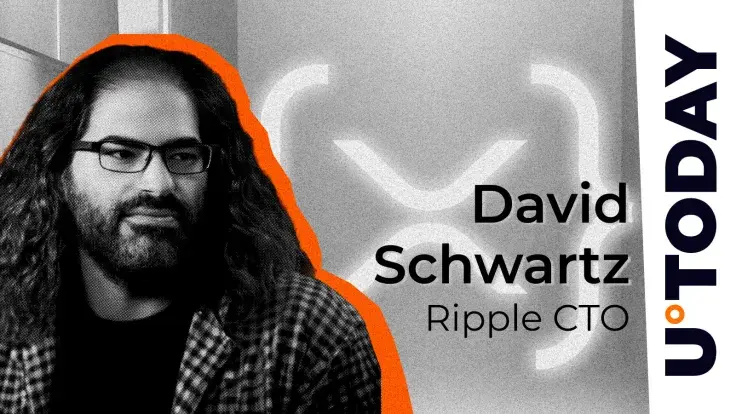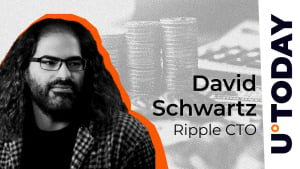
Disclaimer: The opinions expressed by our writers are their own and do not represent the views of U.Today. The financial and market information provided on U.Today is intended for informational purposes only. U.Today is not liable for any financial losses incurred while trading cryptocurrencies. Conduct your own research by contacting financial experts before making any investment decisions. We believe that all content is accurate as of the date of publication, but certain offers mentioned may no longer be available.
Ripple CTO David Schwartz has weighed in on the ongoing discussion on X about Bitcoin (BTC), Ethereum (ETH) and the XRP Ledger (XRPL), highlighting the technical advantages of XRPL’s transaction model over Bitcoin.
Schwartz responded to an X user who compared the XRP Ledger, Bitcoin and Ethereum transaction mechanisms, saying: "I think it's pretty clear that the technical advantages of XRPL's transaction model give it an advantage over Bitcoin. For Ethereum, given the mix of benefits and drawbacks, I think they each have applications they're better for. When Bitcoin tends to win, it's usually because it's Bitcoin and not for any technical reasons."
This suggests that while Bitcoin dominates the market, its success is largely driven by its first-mover advantage and brand recognition rather than its technical superiority.
The Ripple CTO also commented on a related X post that debated which had "better tech," between Ethereum, Solana and Bitcoin. Expressing his view, Schwartz believes that "ETH and SOL are better tech than BTC, which is natural—they came later. But BTC cannot and should not try to adapt at layer one because BTC's value does not come from having superior tech to other cryptocurrencies at layer one, nor should it."
XRP Ledger at intermediary place
Schwartz elaborated on XRPL's position, calling it an intermediary between Bitcoin and Ethereum in terms of functionality and complexity: "XRPL is at an intermediary place, with some of the advantages of Ethereum (such as more complex functionality than Bitcoin) and some of the advantages of Bitcoin (hardware wallets can know precisely what a transaction could do), but also some of the disadvantages of each of them, for example, less functionality than Ethereum and more complexity than Bitcoin."
The Ripple CTO was reacting to a tweet from Pierre Rochard, VP of Research at Riot, about the differences between Bitcoin and Ethereum transaction processes.
Bitcoin employs a UTXO (Unspent Transaction Output) model, which allows users to explicitly sign off on how specific funds move from existing outputs to newly created outputs.
Ethereum, on the other hand, employs an account-based model that intertwines simple fund transfers with the potential for extremely sophisticated smart contract interactions. This intricacy leads to a more error-prone user experience, particularly for hardware wallets. However, from a user-experience standpoint, Bitcoin's simplicity has a clear advantage over hardware wallets.



 Dan Burgin
Dan Burgin Vladislav Sopov
Vladislav Sopov